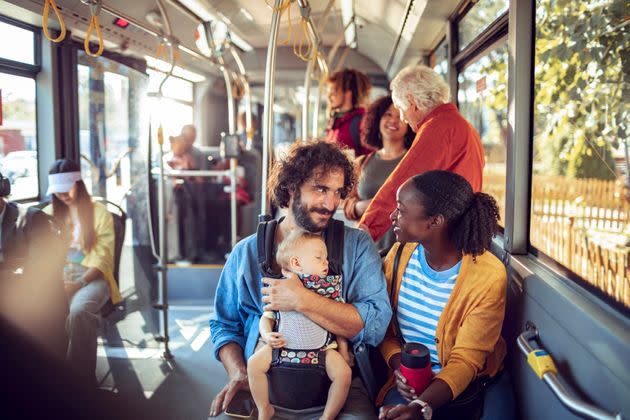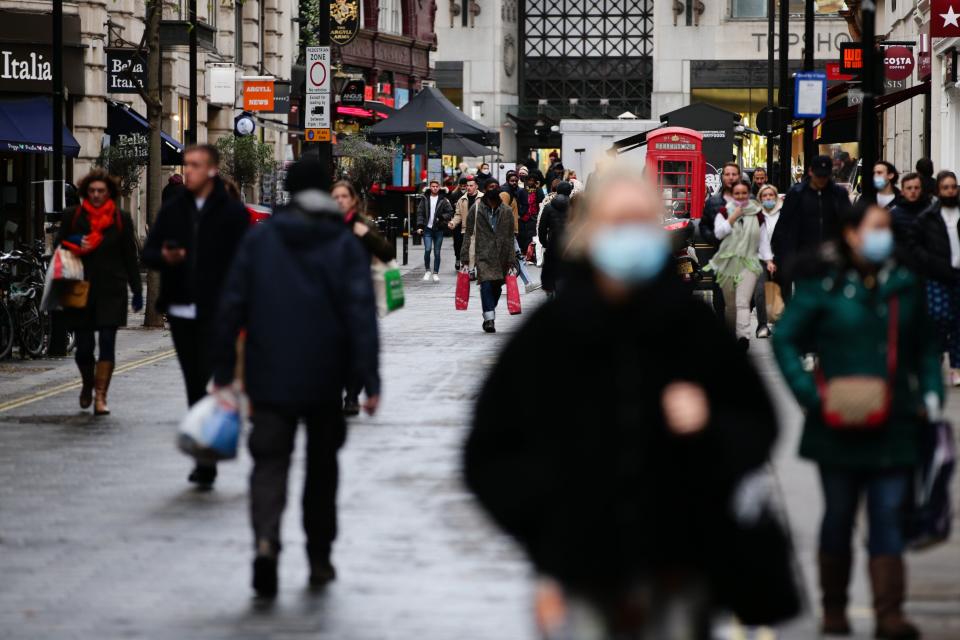What Life Could Actually Look Like In England After July 19

England’s so-called “freedom day” is less than a month away – and Boris Johnson says “it’s looking good”. But if restrictions are lifted, what will life actually be like afterwards?
The proposed plan is that all social restrictions would ease from that date, meaning people would be able to meet up indoors and outside in groups of any size – yes, that means waving goodbye to the rule of six.
Pubs and restaurants would be able to operate as normal without restrictions on how many people could dine at a table, or the need for table service only. And it would also mean nightclubs could reopen and large events with crowds – like festivals and gigs – could go ahead as normal.
It’s looking likely travel won’t be heading back to normal for some time. A Department for Transport spokesperson told HuffPost UK the traffic light system will be here for the foreseeable – including after July 19. However, they’re looking to “scale up” travel, so it’s hoped more countries will be green-listed over the coming weeks.
A report from The Times suggests measures such as the mandatory wearing of face masks in indoor settings, social distancing, and the advice to work from home could also be scrapped from July 19. Rather than being told to wear face masks, people would be advised to wear them in certain settings, the report stated – but this wouldn’t be a legal requirement.
Watch: Lockdown restrictions - What is changing, what is staying the same and why?
A government source told the paper that ministers wanted to get as close to normal as possible on July 19, with an emphasis on “personal responsibility” rather than laws and regulations.
It’s looking likely, however, people will continue to adopt the safety measures after restrictions ease. A survey by YouGov revealed 28% of respondents said they’ll “definitely” wear masks after restrictions are lifted, and 36% said they’ll “probably” continue wearing them.
Meanwhile 38% said they will definitely use hand sanitiser frequently and 40% said they’ll probably do so. One in five said they’ll definitely continue to social distance in public, while 46% said they’ll probably do that, too.
A spokesperson for London mayor Sadiq Khan said it’s “important to follow the science” when it comes to mask-wearing on public transport – even after July 19. “Evidence shows the wearing of face masks gives many Londoners the confidence they can travel safely on public transport,” they told the Evening Standard.
“People feeling confident they can travel on our tubes, buses and trains as they get busier will be a vital part of encouraging more people into central London as restrictions are lifted further, and it is something we will continue to look at closely.”
David Nabarro, the World Health Organisation’s special envoy on Covid, said he wants to see people continue to social distance and wear masks “for the time being” – particularly in areas where the virus is circulating more widely.
He told Sky News: “There will be a need for every single workplace to be asking, ‘Is it right that we stop wearing masks and stop maintaining distance?’ Because that’s the way you prevent people from getting infected and that’s the key to stopping big spikes building up.
“I am advocating continued physical distancing and continued mask-wearing for the time being, including in countries where there’s a lot of vaccination.”
This article originally appeared on HuffPost UK and has been updated.

 Yahoo Movies
Yahoo Movies 





